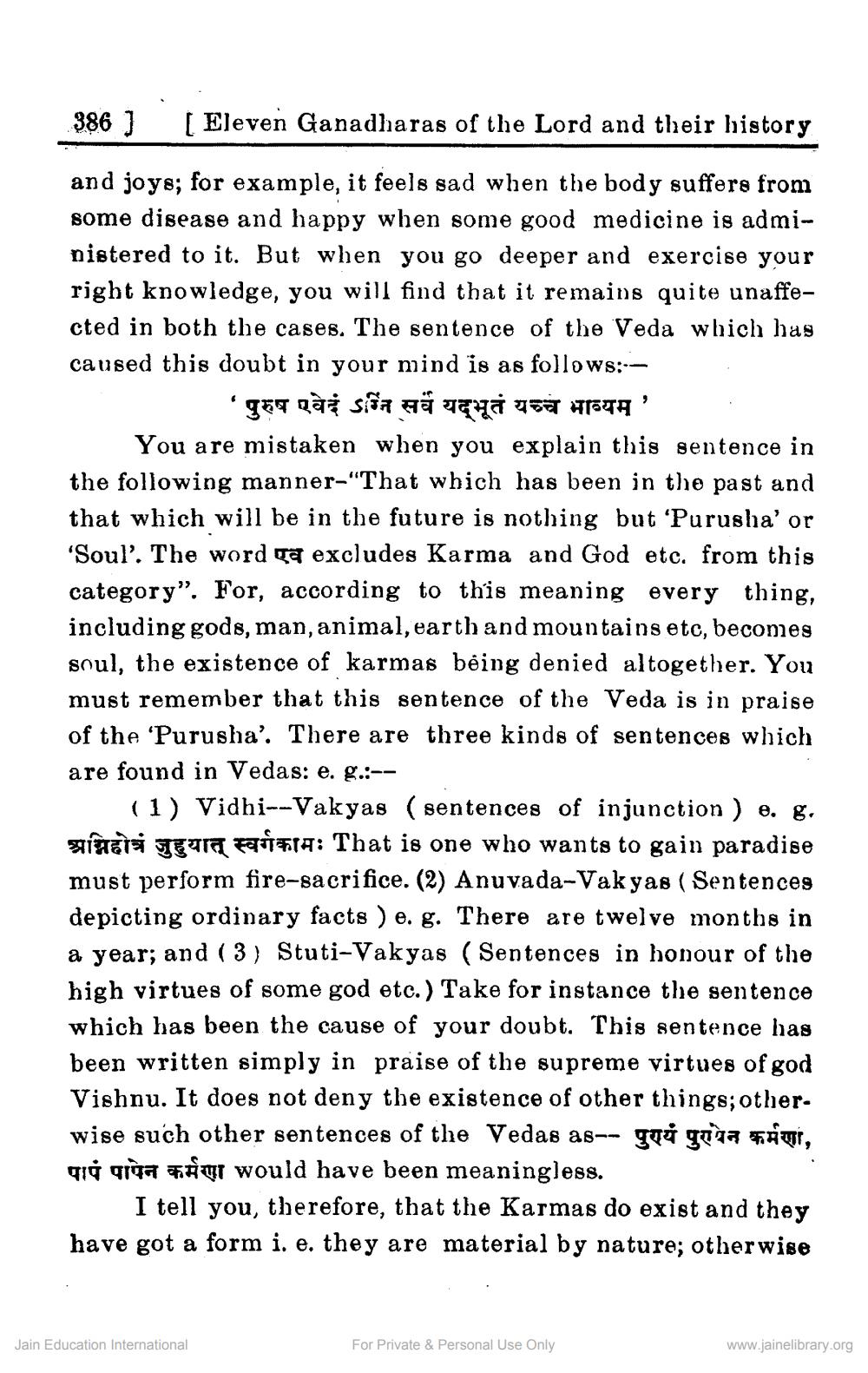________________
386]
[Eleven Ganadharas of the Lord and their history
and joys; for example, it feels sad when the body suffers from some disease and happy when some good medicine is administered to it. But when you go deeper and exercise your right knowledge, you will find that it remains quite unaffected in both the cases. The sentence of the Veda which has caused this doubt in your mind is as follows:--
पुरुष एवेदं
सर्वं यद्भूतं यच्च भाग्यम
You are mistaken when you explain this sentence in the following manner-"That which has been in the past and that which will be in the future is nothing but 'Purusha' or 'Soul'. The word a excludes Karma and God etc. from this category". For, according to this meaning every thing, including gods, man, animal, earth and mountains etc, becomes soul, the existence of karmas being denied altogether. You must remember that this sentence of the Veda is in praise of the 'Purusha'. There are three kinds of sentences which are found in Vedas: e. g.:-
(1) Vidhi--Vakyas (sentences of injunction) e. g. अग्निहोत्रं जुहुयात् स्वर्गकामः That is one who wants to gain paradise must perform fire-sacrifice. (2) Anuvada-Vakyas (Sentences depicting ordinary facts) e. g. There are twelve months in a year; and (3) Stuti-Vakyas (Sentences in honour of the high virtues of some god etc.) Take for instance the sentence which has been the cause of your doubt. This sentence has been written simply in praise of the supreme virtues of god Vishnu. It does not deny the existence of other things; otherwise such other sentences of the Vedas as-- guð guða zĤwi, पापं पापेन कर्मणा would have been meaningless.
"
Jain Education International
I tell you, therefore, that the Karmas do exist and they have got a form i. e. they are material by nature; otherwise
"
For Private & Personal Use Only
www.jainelibrary.org




